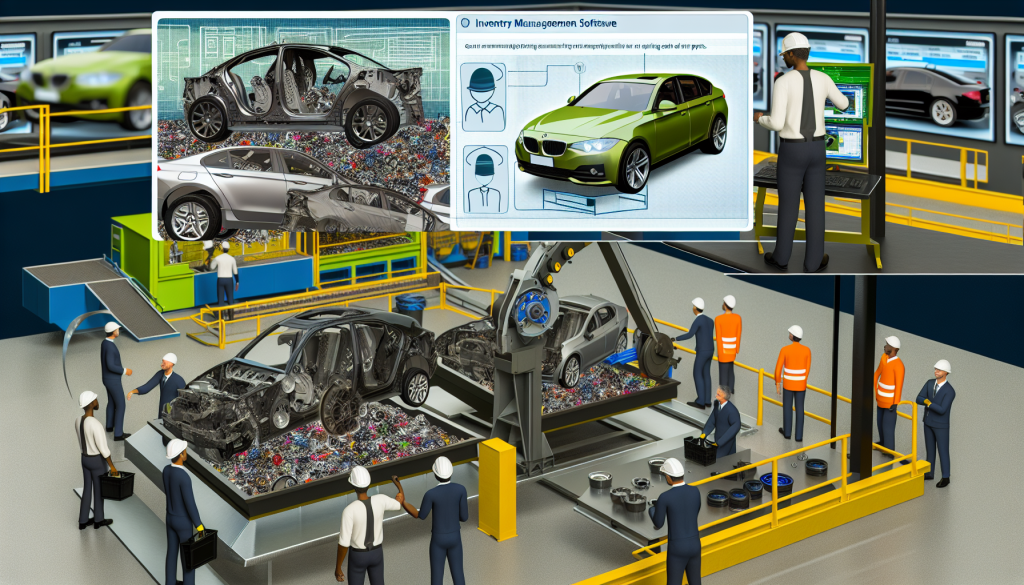Revolutionizing Recycling: Insight into Canada’s Innovative Auto Recycling Revolution

Canada’s Auto Recycling Revolution: Pioneering Sustainable Practices
Canada is leading a transformative revolution in auto recycling that is reshaping the way we view and manage automotive waste. In a time when environmental awareness is on the rise and the urgency to reduce pollution and conserve resources is paramount, Canada’s innovative approach to auto recycling shines brightly as a beacon of progress. This post explores the core of Canada’s auto recycling revolution, highlighting the industry’s innovative practices, remarkable benefits, and significant impacts.
At its essence, Canadian auto recycling goes beyond mere dismantling of old cars and selling parts. It embodies a sophisticated process that involves recovering and reusing valuable materials, responsibly disposing of hazardous components, and staunchly committing to reducing the environmental impact of automotive waste. This industry has evolved into a well-organized, efficient, and environmentally beneficial sector, presenting a sustainable operational model that is beginning to influence other nations.
Innovative Practices Setting the Industry Apart
The Canadian auto recycling industry stands out for its embrace of various innovative practices that distinguish it. Advanced technology plays a pivotal role, with many recyclers employing sophisticated software to manage inventory, optimize operations, and boost parts recovery efficiency. This technology also opens up a global marketplace, enabling parts and materials to find new applications far beyond their initial uses.
Furthermore, Canadian auto recyclers lead in the eco-friendly management of vehicle fluids and hazardous materials. These substances are meticulously handled and processed to prevent soil and water contamination. The industry partners closely with manufacturers and stakeholders to enhance vehicle design for ease of disassembly and recycling, driving the adoption of more sustainable manufacturing practices in the automotive sector.
Clear and Compelling Benefits
Canada’s auto recycling approach yields both environmental and economic advantages. Environmentally, it substantially reduces the industry’s carbon footprint by conserving resources and curbing energy consumption needed for producing new materials. Recycling metals from vehicles requires notably less energy than generating them from ore, resulting in reduced greenhouse gas emissions.
Economically, the auto recycling sector significantly contributes to Canada’s economy, creating numerous jobs and generating substantial revenue. By offering affordable, quality recycled parts to the market, it helps lower vehicle repair costs for consumers, making vehicle maintenance more accessible and extending the lifespan of existing vehicles.
A Sustainable Development Model
Canada’s auto recycling revolution exemplifies sustainable development by showcasing how environmental stewardship and economic prosperity can harmonize to drive industry growth. The interconnected benefits of environmental preservation, resource conservation, and economic well-being underscore the importance of incorporating sustainability as a central tenet of industry advancement.
Looking ahead, the Canadian auto recycling industry is positioned to assume an even more pivotal role in the circular economy. As the world transitions towards electric vehicles and new mobility solutions, the industry’s innovative practices and sustainability values will be crucial in addressing the new challenges posed by these changes. Whether it involves managing the intricate recycling demands of electric vehicle batteries or finding fresh applications for conventional automotive materials, Canada’s auto recyclers are prepared to lead the charge.
In closing, Canada’s groundbreaking auto recycling revolution transcends mere waste reimagining; it is boldly pioneering a future where every facet of a vehicle’s life cycle contributes to a more sustainable world. Through cutting-edge practices, substantial environmental and economic benefits, and a forward-thinking mindset, Canadian auto recyclers are setting a benchmark for an industry at the intersection of technology, sustainability, and economic advancement. As this revolution unfolds, it offers a potent illustration of how innovation and environmental responsibility can steer positive change, thereby making a substantial impact on our world.











